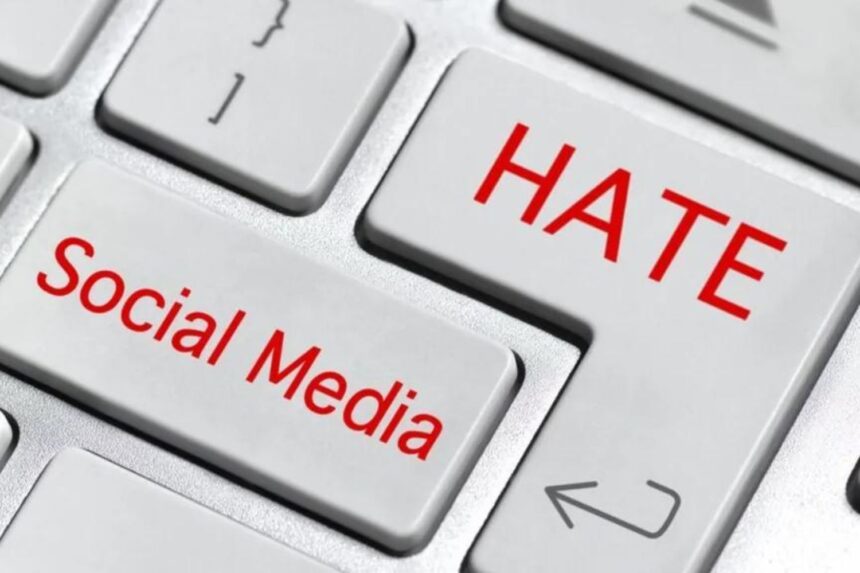In a controversial move that has sparked widespread debate about freedom of speech and civil liberties, authorities in the United Kingdom have begun arresting individuals for social media posts deemed “hateful” by the government. This initiative, which aims to combat online hate speech and protect vulnerable communities, is raising questions about the balance between public safety and individual rights.
The crackdown follows the introduction of new legislation aimed at tightening restrictions on online content. Officials argue that the rise in hate speech, particularly during politically charged times, necessitates decisive action. The UK Home Secretary, Yvette Cooper stated, “We cannot allow hatred to fester in our society, especially in spaces where people feel safe to express themselves. Our priority is to create a safer online environment for everyone.”
Since the policy’s implementation, several individuals have been arrested across the country for posts that authorities claim incite violence, discrimination, or harassment. In some cases, social media platforms have co-operated with law enforcement by flagging content that violates the new guidelines. Critics argue that this could lead to a chilling effect on free expression, as users may self-censor out of fear of repercussions.
Civil liberties organizations have raised alarms, warning that the law could disproportionately target marginalised voices saying that while they agree that hate speech must be addressed, this approach risks silencing legitimate discourse and dissent.
Public reaction has been mixed. Some applaud the government’s efforts to curb online hate speech, while others worry about the implications for free speech. Online forums have ignited discussions about the definitions of hate speech and the potential for misuse of the law. Many citizens are left questioning where the line is drawn between protecting communities and suppressing free expression.
Legal experts are also weighing in, suggesting that the implementation of these laws could lead to numerous challenges in the courts. The legal definitions of hate speech are often vague and subjective. This ambiguity can lead to arbitrary enforcement and potential violations of rights.
As the UK government navigates this complex issue, the balance between maintaining public safety and upholding democratic principles remains at the forefront of national conversation. With more arrests likely on the horizon, the country watches closely as this bold initiative unfolds, hoping for a resolution that respects both the safety of its citizens and their fundamental rights.
The long-term impacts of the UK’s crackdown on online hate speech can be significant and multifaceted, affecting various aspects of online platforms, user behaviour, and societal norms. Here are some potential outcomes:
1. Increased Self-Censorship: Users may become more cautious about expressing their opinions online, leading to a culture of self-censorship. This could stifle open dialogue and hinder the exchange of diverse viewpoints, ultimately affecting democratic discourse.
2. Changes in Content Moderation Policies: Social media platforms might adopt stricter content moderation policies in response to government pressure. This could lead to the removal of posts and accounts that are deemed problematic, even if they do not clearly violate laws, resulting in a more sanitized online environment.
3. User Migration: Users dissatisfied with the perceived censorship on mainstream platforms could migrate to smaller or decentralized platforms that prioritize free speech. This shift may create echo chambers and reduce exposure to differing perspectives.
4. Legal Challenges and Precedents: The crackdown could lead to legal challenges regarding the interpretation of hate speech laws and their application. The outcomes of these cases could set important precedents for future regulations and users’ rights.
5. Impact on Innovation: Stricter regulations may stifle innovation in content moderation technologies and practices. Companies might become more risk-averse, leading to less experimentation with new features or algorithms that could enhance user experience.
6. Increased Surveillance and Monitoring: To comply with government mandates, platforms may invest in more advanced surveillance and monitoring technologies. This could raise privacy concerns among users and lead to debates about the balance between safety and individual rights.
7. Public Trust and Engagement: If users feel that their freedom of expression is under threat, trust in online platforms could diminish. This decline in trust may result in lower engagement levels, as people may choose to limit their participation in discussions or avoid social media altogether.
8. Influence on Political Discourse: Online platforms play a vital role in shaping political discourse. A crackdown on hate speech may inadvertently influence political dynamics, as certain groups may feel marginalized or silenced, potentially leading to polarization and unrest.
9. Global Implications: The UK’s approach could inspire similar actions in other countries, leading to a widespread trend of stricter online regulations. This could create a ripple effect, influencing international norms and standards regarding free speech and hate speech.
10. Evolving Definitions of Hate Speech: As societal values evolve, so too may the definitions and interpretations of hate speech. Ongoing debates could lead to shifts in what is considered acceptable behavior online, impacting both users and platform policies.
So while the intention behind the crackdown may be to foster a safer online environment, the long-term consequences may challenge the foundational principles of free speech and open dialogue in digital spaces.
ALSO READ: Legal loopholes leave victims of sexualised deep fake abuse vulnerable













